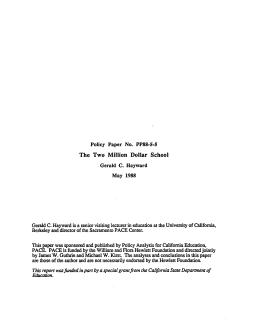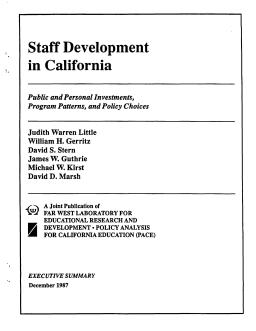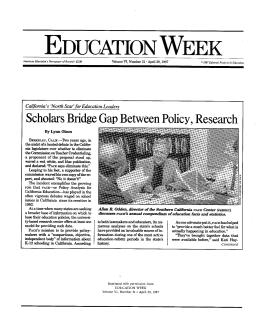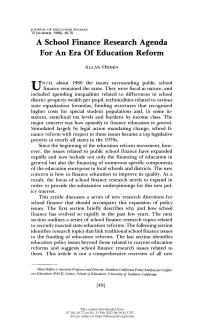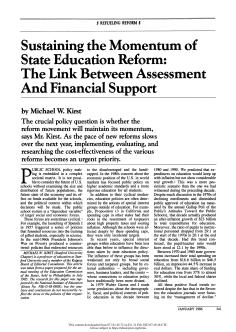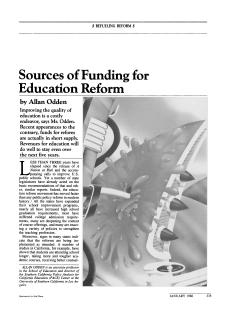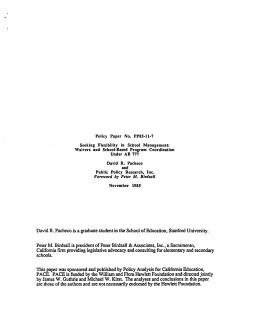Published
Summary
In 1987, the Superintendent of Public Instruction released a document detailing the average costs of California schools for 1985-86, providing a brief summary of school expenditures. However, this report lacks in detail, and this report aims to provide more comprehensive and realistic data on school expenditure patterns. The report serves as an analytical base for exploring issues surrounding school expenditures in California, and the data was provided by the state Department of Education staff.
Public and Personal Investments, Program Patterns, and Policy Choices—Executive Summary
Published
Summary
The California Staff Development Policy Study was initiated to assess the possibilities and limitations of staff development in improving classroom teaching and learning. The study aims to answer four questions related to California's investment in staff development, how staff development activities are administered, and how teachers and administrators judge their effectiveness. The study yields eight main conclusions, presented in terms of investment and focusing on improving the capacities and commitments of California's educators.
Published
Summary
PACE, a university-based research center, provides "nonpartisan, objective, independent" information on K-12 schooling in CA. Its analyses have been invaluable to lawmakers and educators during the state's active education-reform period. PACE has played a growing role in debates on school issues, exemplified by a heated debate in the CA legislature over the Commission on Teacher Credentialing. PACE offers a model for providing data for education policies when many states are seeking broader information bases. It has helped provide a better understanding of what is happening in education.
Published
Summary
Before the 1970s, public school finance issues were mainly related to spending inequalities. However, since then, the focus has shifted towards financing education to improve its quality. This article suggests new research directions for school finance that address this policy interest, including topics related to state education reforms, traditional school finance issues, and education policy issues beyond current reforms.
The Link Between Assessment and Financial Support
Published
Summary
Public school policy making is embedded in a complex societal matrix. It is not possible to consider the future of U.S. schools without examining the size and distribution of future populations; the future state of the economy and its effect on funds available for the schools; and the political context within which decisions will be made. The public school system is a "dependent variable" of larger social and economic forces.
Published
Summary
Several state legislatures have acted on recommendations to improve U.S. public schools, resulting in a swift and broad education reform movement. States have expanded school improvement programs, increased high school graduation and college admission requirements, deepened course offerings, and strengthened the teaching profession. Indicators of progress include longer school attendance, tougher academic courses, better counseling, higher achievement test scores, and increased teacher pay. This swift and broad movement gives reason for optimism about its success.
Waivers and School-Based Program Coordination Under AB 777
Published
Summary
California's waiver authority provides school districts relief from Education Code, allowing them to seek alternatives to state requirements subject to local and state review. Waivers are automatically approved unless denied by the State Board of Education, which rarely happens over local objections. Program waivers are rare despite clamor for needed flexibility, possibly due to districts being unaware of the process, viewing it as time-consuming, or using suboptimal local procedures. Oversight hearings are recommended to explore the potential of the waiver process.
